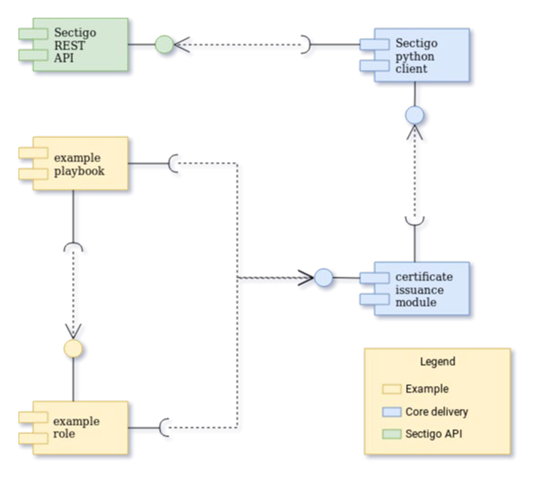Components
Ansible modules are a natural way to simplify the complexity of the Sectigo API. The Ansible module provides higher level constructs and hides the details of the Sectigo API. It also plays the role of adapter between the Ansible playbooks and the REST API.
The Sectigo Ansible integration is based on the following four components:
-
The Python client library for the Sectigo API which handles the communication with the Sectigo REST API.
-
The Ansible module which mediates the interaction between the user and the Sectigo REST API.
-
An Ansible role example which provides a basic role for the certificate issuance that can be tailored to meet specific needs.
-
An Ansible playbook example which shows how to take advantage of the example role from an Ansible playbook.

Python client library
The Python client library is delivered as a component of the Ansible module. The intended use is that the Ansible module is the only software component interacting with the library.
| This library is not designed or delivered as a general-purpose library for Sectigo customers. |
Ansible module
The Ansible module comes with documentation available using the standard ansible-doc command line utility.
It is delivered as a standard module with minimum dependencies.
The full list of dependencies is identified in a pip requirements file.
The requirements are also explicitly stated in the documentation.
The Ansible module supports the enrollment, collection, and revocation of SSL and client certificates.